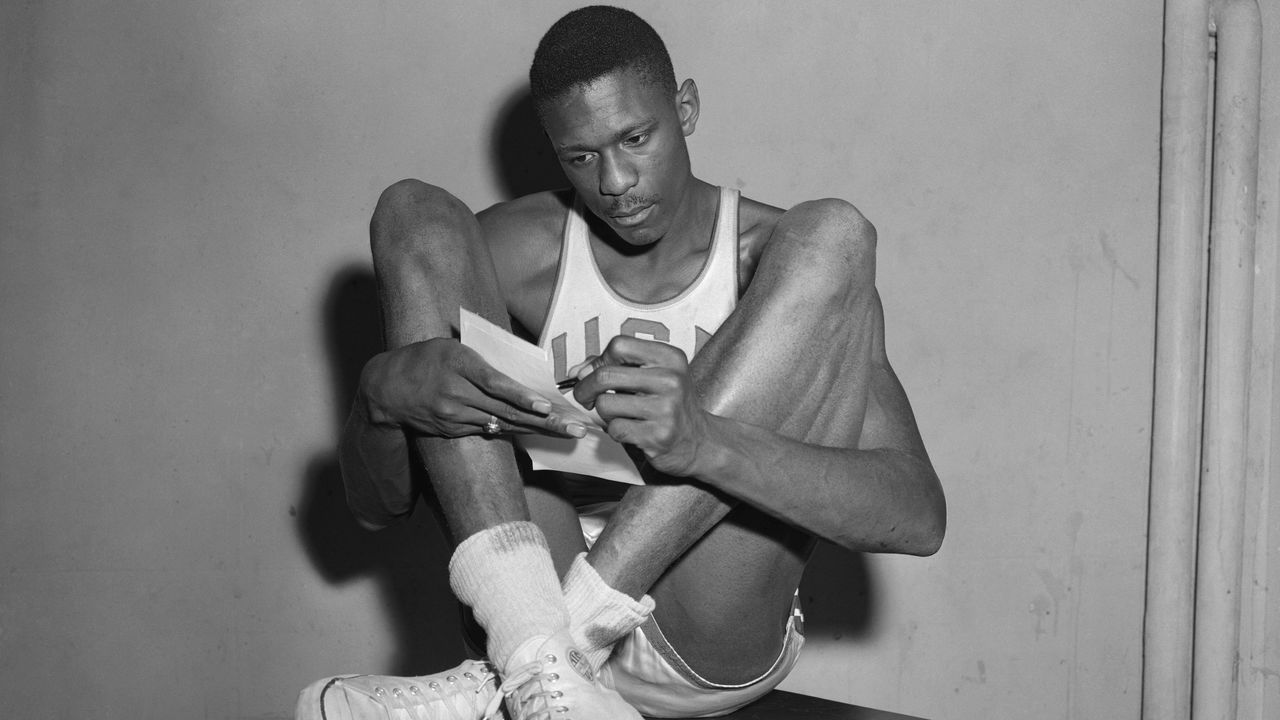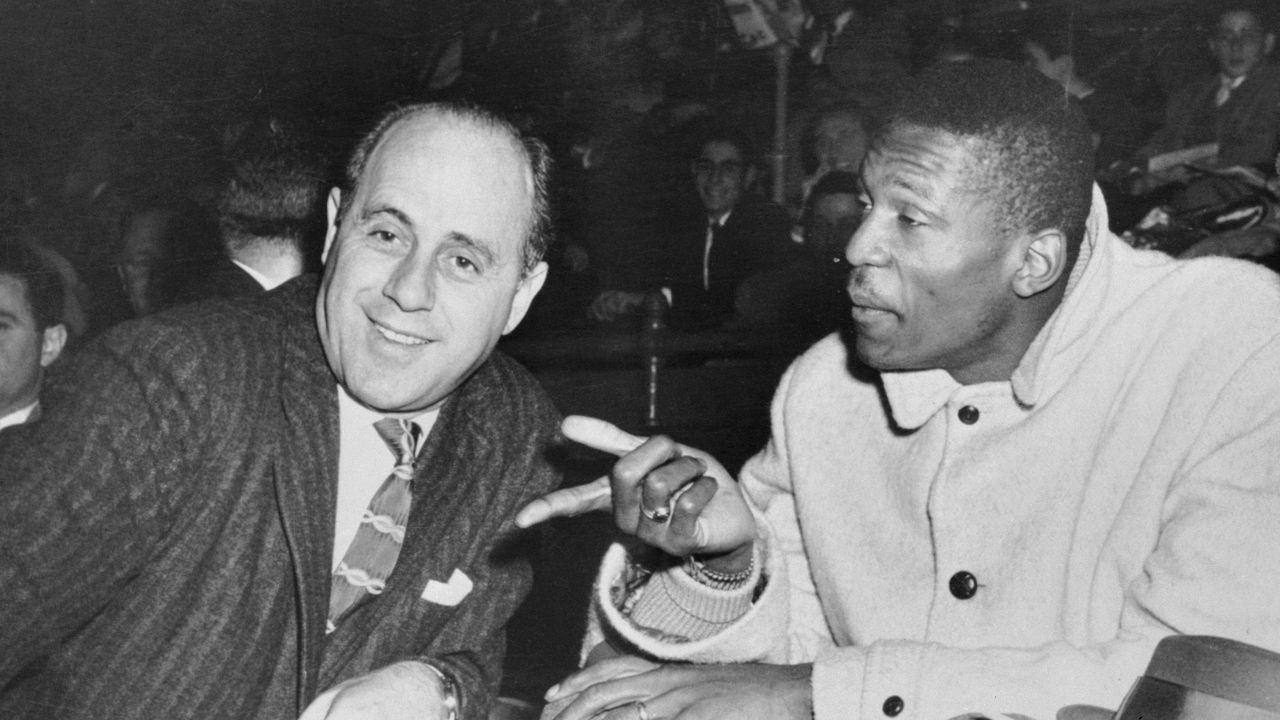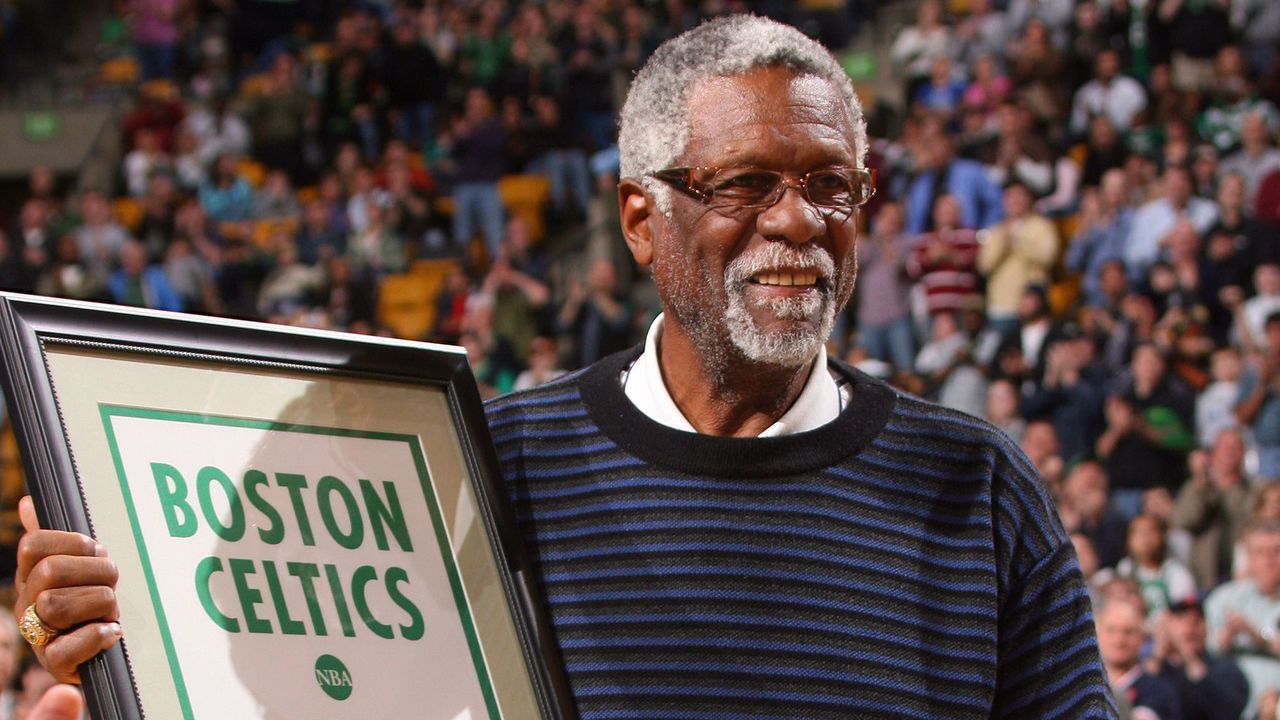Top 25 rookie seasons in NBA history: No. 6 Bill Russell
The greatest rookie seasons in NBA history share a number of qualities, starting with individual statistical dominance. However, you can't overlook the context beyond the box score; initial expectations, team success, and overall legacy all matter.
While we wait for the 2019-20 season to resume, theScore's NBA editors have dusted off the record books to determine the top 25 rookie seasons in league history.
No. 6 in our series is Boston Celtics legend Bill Russell. Catch up on previous posts in the series here.
Before the Association

Russell was a standout phenom for three seasons at San Francisco.
The towering center led the Dons as a freshman in 1953-54 with 19.9 points per game. He also averaged 19.2 rebounds, more than doubling the team's next best rebounder. Despite Russell's prowess that season, San Francisco didn't make the NCAA Tournament.
His final two years produced far better results for both himself and the school. With the Dons' unstoppable star averaging north of 20 points and 20 rebounds in each season, Phil Woolpert's side not only qualified for the NCAA Tournament for the first time, but San Francisco also became back-to-back national champions. Russell received numerous individual accolades, including the tournament's Most Outstanding Player award in 1955.
Draft day
Legendary Celtics head coach Red Auerbach was adamant on landing Russell.
He was widely expected to be selected within the first few picks, but the Celtics had forfeited their first-rounder in order to take Tom Heinsohn with a territorial selection, a now-extinct procedure that gave teams first priority with local amateur players.
The Rochester Royals owned the top pick, but Auerbach supposedly convinced them not to take Russell by offering their owner the chance to host the "Ice Capades," a traveling entertainment show. The veracity of that story is still debatable, but what happened next is certain; the St. Louis Hawks drafted Russell second overall and shipped his draft rights to the Celtics in exchange for Ed Macauley and Cliff Hagan.
Auerbach got his man.
Individual success

Russell missed the first two months of the 1956-57 season to help the U.S. win gold at the 1956 Melbourne Olympics, but his delayed NBA debut was worth waiting for.
In his first 10 games, Russell grabbed 21.4 rebounds per contest while dropping 12.1 points per game. He finished the season averaging 14.7 points and a league-best 19.6 boards. Although blocks weren't officially tallied by the NBA until 1973, the 6-foot-10 Russell was also heralded for his rim protection and overall defensive capabilities.
However, Russell wasn't named Rookie of the Year. That honor went to his teammate, Heinsohn, who played in all 72 of Boston's regular-season games, compared to just 48 for Russell. Yet Russell still gave the Celtics the vital inside presence they had been lacking.
Team success
With stars such as Bob Cousy and Bill Sharman, plus outstanding rookies in Russell and Heinsohn, the Celtics were expected to improve on the previous season's first-round exit.
Boston shattered those expectations, finishing with the best regular-season record at 44-28. The Celtics went on to meet the Hawks in The Finals and secured their first NBA title with a double-overtime Game 7 victory. Russell put up 19 points and 32 rebounds in the decider.
Enduring legacy

There's a reason why the Finals MVP trophy is named after Russell.
While the accolade was only introduced at the tail end of his playing days, Russell's 11 NBA championships are the most won by any player, as he led a Celtics dynasty that spanned 13 seasons.
Russell won several individual honors, too. He was a five-time MVP, 12-time All-Star, and an 11-time All-NBA honoree. He also remains just one of seven players ever to win an NCAA title, an NBA championship, and an Olympic gold medal. The Celtics retired his No. 6 in 1972 (and then again in 1999) and he was inducted into the Basketball Hall of Fame in 1975.
However, Russell's legacy extends beyond the hardwood.
The iconic Celtic has long been a human rights activist who's been candid about his experiences dealing with racism during his career. In 2013, Russell revealed that he had marched with Martin Luther King Jr. in 1963 and even declined King's invitation to stand next to him during his iconic "I Have a Dream" speech. He also became the first Black head coach in any major professional U.S. sport when he agreed to succeed Auerbach in 1966 and become a player-coach with Boston.
In 2010, President Barack Obama named Russell a recipient of the Presidential Medal of Freedom, the country's highest honor for a civilian.
Come back tomorrow to see who came in at No. 5 in theScore's Top 25 Rookie Seasons series.